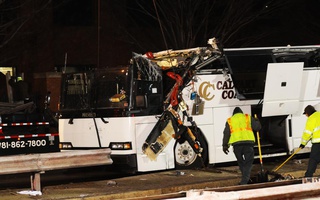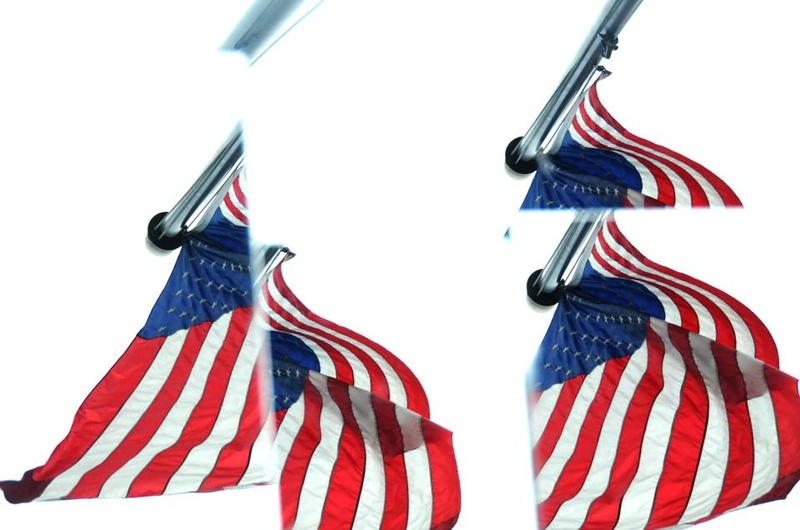September 11, 2001 is often described as a sunny day interrupted by the sudden crashing of airplanes into two of the country’s most iconic buildings. The jet fuel melted concrete. Bodies tumbled from windows.
The events of that day made little sense at the time—and it is still difficult to assign them meaning. Somehow, a group of bearded men in caves in Afghanistan had been able to strike a blow at the world’s most powerful nation.
For a generation that had known nothing but 1990s peace and prosperity, 9/11 has come to represent, in one way at least, a loss of innocence. It is most likely this that the term “9/11 generation” refers to.
For us, children in 2001, that day made even less sense. Most teachers didn’t honestly address what had happened. Some kids were just happy to get an unforeseen recess. But even if that day wasn’t experienced in its stark reality, 9/11 has served as the backdrop for the coming of age of young people today.
In short, that moment of crisis represents the defining event of a generation—even if young people’s memories of that day involve blithely playing on a playground, images of parents glued to television screens, and the sudden appearance of American flags on every house.
That day, America coalesced around a shared enemy. And the feeling of brotherly love led to thousands of people rushing to New York City and Washington D.C. to aid the recovery effort. It also led to violent reprisals against this country’s real and perceived enemies.
Whether it involved manufacturing “9/11—Never Forget” bumper stickers, Red Cross blood drives, or military recruitment, American culture rallied around supplying its citizens with the tools to express newly acquired patriotic fervor. Even if the feelings that motivated the purchase of that bumper sticker have dissipated, the bumper sticker remains on the back of cars around this country. It would be uncomfortable to peel one off.
So the outward appearance of sentiment—the flag pin of it—remains today, even if it has become hollow. The very real emotion that led to the proliferation of American flags has by and large faded. All such feelings do.
What we’re left with is the gravestones of a forgotten feeling—a schmaltzy Americana—that weighs down our cultural moment. By examining the timeline of our post-9/11 patriotism and seeing its proliferation in culture, we can best understand what it has meant for young people today. In cultural items as different as country pop, prime-time TV, and the 7th inning stretch, we can see the shadow of lost belief.
BOTTOM SEVEN
The fall of 2001 was a season of surprising reversals for the United States, and that October a most improbable thing happened—America started rooting for the Yankees. Overnight the country began to grasp for all that was familiar and comforting, venturing into its closet of dusty traditions and trying on baseball, which fit the national mood with the reliability of an old mitt.
Soon after, Major League Baseball mandated that “God Bless America” be sung in every game for the rest of the season, and in some cases the song replaced the hallowed classic “Take Me Out to the Ballgame.” Sports schmaltz, then, was replaced or overshadowed by patriotic schmaltz in a direct response to 9/11. Today, the Yankees, Braves, Mariners, and Dodgers still play the song every game, and it’s been instituted league-wide that the postseason games include the song. For baseball to regain its status as The National Pastime, it needed a symbol.
Doris Kearns Goodwin, a prominent American historian, is also one of our country’s foremost baseball fanatics. “It was sort of a requirement in the year afterwards,” says Goodwin of “God Bless America” in baseball. “People were rooting for the Yankees, incomprehensibly, even myself.” Goodwin believes that baseball’s symbolic importance had relevance directly after 9/11, comparable to the power of having an American flag for parents of soldiers.
That “God Bless America” has become a requirement, however, changes its meaning. “You shouldn’t have to prove your patriotism by that kind of symbol,” Goodwin says.
Associate Professor in the Literature Department and former New York resident Christopher Johnson sees this patriotic ritual in broad terms, as endemic in contemporary culture. Another example is criticism in 2008 that Barack Obama was not wearing a flag pin; another is Congress’ 2003 decision to coin the phrase “Freedom Fries” for fried potatoes served in the Capitol Hill dining hall; another is the recent debate over whether a mosque near Ground Zero was too symbolically distasteful. The seed was planted with 9/11, which was perceived as the ultimate attack on American symbols, rebuking freedom and The American Way.
Read more in News
Ec10 Nabs Top Spot in Course Enrollment NumbersRecommended Articles
-
 Just Say ‘No’ to NYC?
Just Say ‘No’ to NYC? -
5 Minutes with David AxelrodDavid Axelrod, President Obama’s chief campaign strategist and former senior advisor, spoke to students at an off-the-record event on Monday. ...
-
Injuries Threaten Strong SeasonI feel forced to do this because following the Harvard men’s cross country team this season has felt like a trip to Magic Mountain.
-
Harvard in the Political Moments that Changed HistoryOn a warm night in October of 1957, history professor Charles S. Maier ’60 left his dorm room to stand on Weeks Footbridge and stare at the sky.
-
Point/Counterpoint: Blake Shelton: American Idol?Blake Shelton is praised for his take on traditional country music, but is his style original enough to merit an award?
-
 More Than 30 Injured in Bus Crash Following Trip to Harvard
More Than 30 Injured in Bus Crash Following Trip to Harvard














